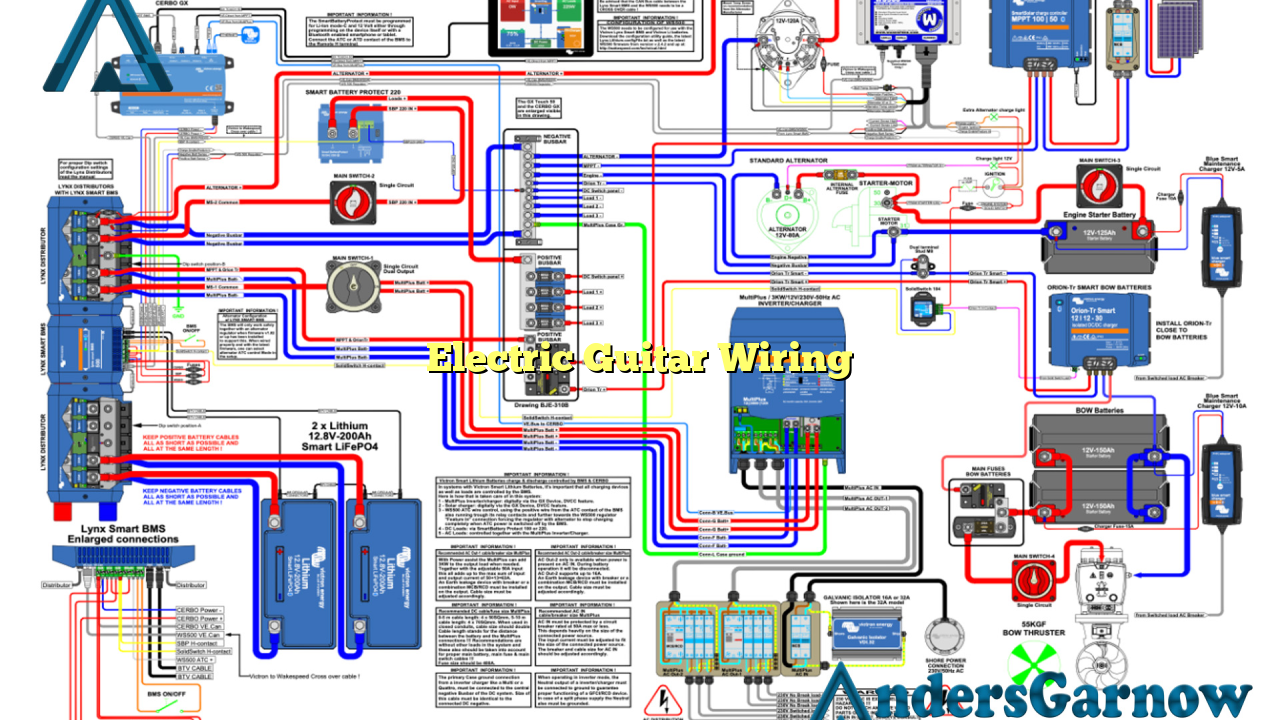Hello! Welcome to our comprehensive guide on electric guitar wiring. In this article, we will delve into the intricacies of electric guitar wiring, discussing its importance, components, advantages, disadvantages, and alternative options. Whether you are a seasoned guitarist or a beginner looking to modify your instrument, understanding electric guitar wiring is crucial for achieving the desired sound and tone. So, let’s dive right in!
1. Importance of Electric Guitar Wiring
Electric guitar wiring plays a vital role in shaping the sound produced by the instrument. It involves connecting various components, such as pickups, switches, pots, and capacitors, to create different tonal possibilities. Proper wiring ensures optimal signal flow, reduces unwanted noise, and enables control over volume and tone.
2. Components of Electric Guitar Wiring
The key components of electric guitar wiring include:
| Component | Description |
|---|---|
| Pickups | Converts string vibrations into electrical signals |
| Switches | Controls pickup selection and circuit configuration |
| Pots (Potentiometers) | Adjusts volume and tone settings |
| Capacitors | Filters high frequencies and affects tone control |
3. Advantages of Electric Guitar Wiring
Properly wired electric guitars offer several advantages:
- Customization: Wiring allows you to customize your instrument’s sound to match your preferences.
- Versatility: Different wiring configurations enable a wide range of tones, from warm and mellow to bright and aggressive.
- Experimentation: Wiring provides a platform for experimentation, allowing you to explore unique sounds and textures.
- Repairability: Understanding wiring enables you to diagnose and fix issues with your guitar’s electronics.
4. Disadvantages of Electric Guitar Wiring
While electric guitar wiring offers numerous benefits, it also has some drawbacks:
- Complexity: Wiring an electric guitar can be complex, especially for beginners, requiring knowledge of soldering and electronics.
- Mistakes: Incorrect wiring can lead to malfunctioning components or even damage the instrument.
- Time-consuming: Properly wiring an electric guitar takes time and patience, especially when experimenting with different configurations.
5. Alternative Options for Electric Guitar Wiring
For those who are not comfortable with wiring or want to avoid its complexities, there are alternative options available:
- Pre-Wired Pickguards: These ready-to-install pickguards come with pre-installed pickups and wiring, simplifying the modification process.
- DIY Wiring Kits: Wiring kits provide all the necessary components and instructions to wire your guitar without the need for advanced knowledge.
- Professional Assistance: If you are uncertain about wiring, seeking help from a professional guitar technician is always a viable option.
Conclusion
In conclusion, electric guitar wiring is a fundamental aspect of achieving the desired sound and tone. While it may be complex and time-consuming, understanding the components, advantages, disadvantages, and alternative options can help you make informed decisions. Whether you choose to wire your guitar yourself or seek professional assistance, remember that experimentation and customization are at the heart of creating unique sounds. Happy wiring!
FAQ (Frequently Asked Questions)
Q: Can I modify the wiring of my existing electric guitar?
A: Yes, you can modify the wiring of your electric guitar to achieve different tones and sounds. However, it is essential to have a good understanding of electronics and soldering skills, or seek professional help to avoid damaging your instrument.
Q: How can I reduce unwanted noise in my electric guitar?
A: Unwanted noise in electric guitars can be reduced by using shielded cables, grounding the guitar properly, and placing shielding materials in the guitar’s control cavity.
Q: Can I use any type of pickups with any wiring configuration?
A: Pickups and wiring configurations are interdependent. Different pickups require specific wiring configurations for optimal performance and compatibility. It is essential to research and choose the right combination for your desired sound.
Q: What tools do I need for electric guitar wiring?
A: Some essential tools for electric guitar wiring include a soldering iron, solder, wire cutters/strippers, a multimeter for testing, and various screwdrivers for accessing the guitar’s electronics.

